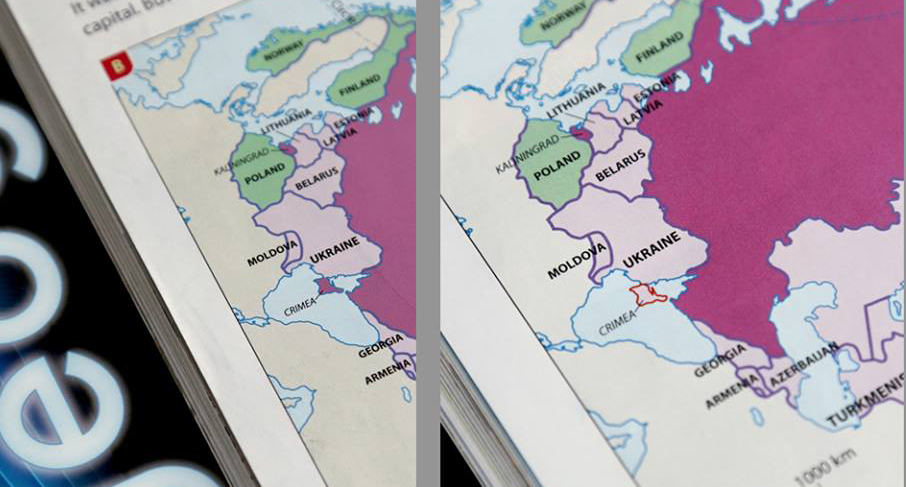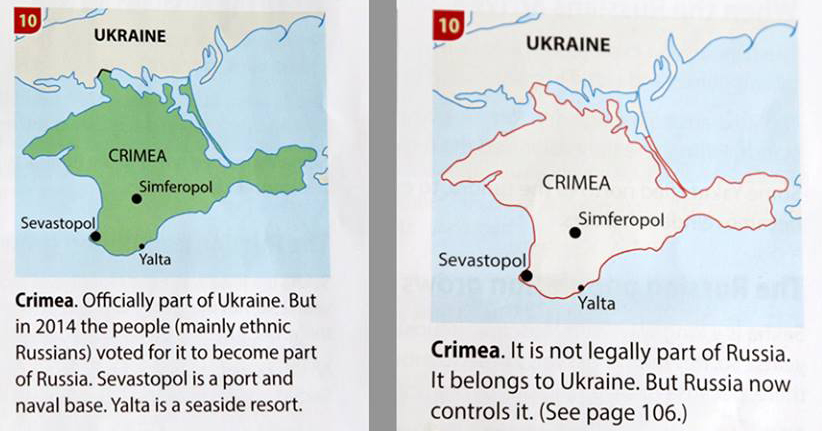The Oxford University Press published a new textbook on Geography, in which Crimea was recognized as a Russian territory. However, Kiev found that the textbook “misinformed students” and urged the publisher to correct “mistakes”, as they “could create a bad image of Oxford University.” The textbook was republished. Now it says that the peninsula belongs to Ukraine, but Russia now controls it.


The fact is more honored in the breach than in the observance. Political relations between Moscow and London leave much to be desired.
The Director General of the Center for Political Information, Alexey Mukhin, thinks that there are deep geopolitical contradictions between Russia and Great Britain: “They are primarily connected with the fact that we are former empires. The United Kingdom ceased to be an empire in the 1980s. We have certain inherent defects, which prevent us from being friends. But it inspires a certain optimism – that means we can only move closer.”
Mukhin reminded that 2008 was a year of crisis in relations between Russia and Britain: “That year we stopped going to London for the Russian Economic Forum, we moved it to St. Petersburg. Perhaps this is why British tourists are so fond of this city. Secondly, we refused to provide a regional network for the famous British Council, which then simply folded its activities in Russia in general. I think that 2008 was a fatal year in our relations at the last stage.”
Mukhin also notes that we cannot ignore the fact that a very stable Russian community was formed in London, and a very specific one: “These are hundreds of thousands of Russian citizens, who have a very specific attitude to Russia, and demonstrate it through the British media in every way. I mean, of course, businessmen who consider themselves political exiles, but in fact, they are simply entrepreneurs, who caused mayhem in Russia, but the United Kingdom does not extradite in any case. And among these businessmen we see people who are now sponsoring the Russian non-systemic opposition, which is in a very unconstructive position towards the Russian authorities, and even Russian society. I mean Andrey Borodin, Evgeny Chichvarkin, who behave very strangely. At the same time, Great Britain provides them political patronage in every possible way. All of this, of course, complicates our relations to a much greater extent than we can afford.”
Moreover, according to Mukhin, the British media quite actively and quite directly points to the fact that Russia is to blame for almost all the troubles that one could imagine. Such an emotional position will certainly be an obstacle for the improvement of relations. “In addition, I would note the unprecedentedly high level of activity of British special services in Russian society, particularly in the North Caucasus, during very sensitive moments, when we had the conflict of the federal center and some of the North Caucasus regions. It is very difficult to ignore all of this. Moreover, it is very difficult to ignore the fact that even though Russia is sometimes the fifth, sometimes sixth economy in the world, and the UK is the third economy in Europe, our trade and economic balance is minimal. In the best year, it amounted to 6.6 billion dollars. That was in 2013. And after the situation in Ukraine, it fell threefold to 2.2 billion dollars. In this regard, you must agree, it is difficult to talk about strategic cooperation between Great Britain and Russia in a positive way.”






